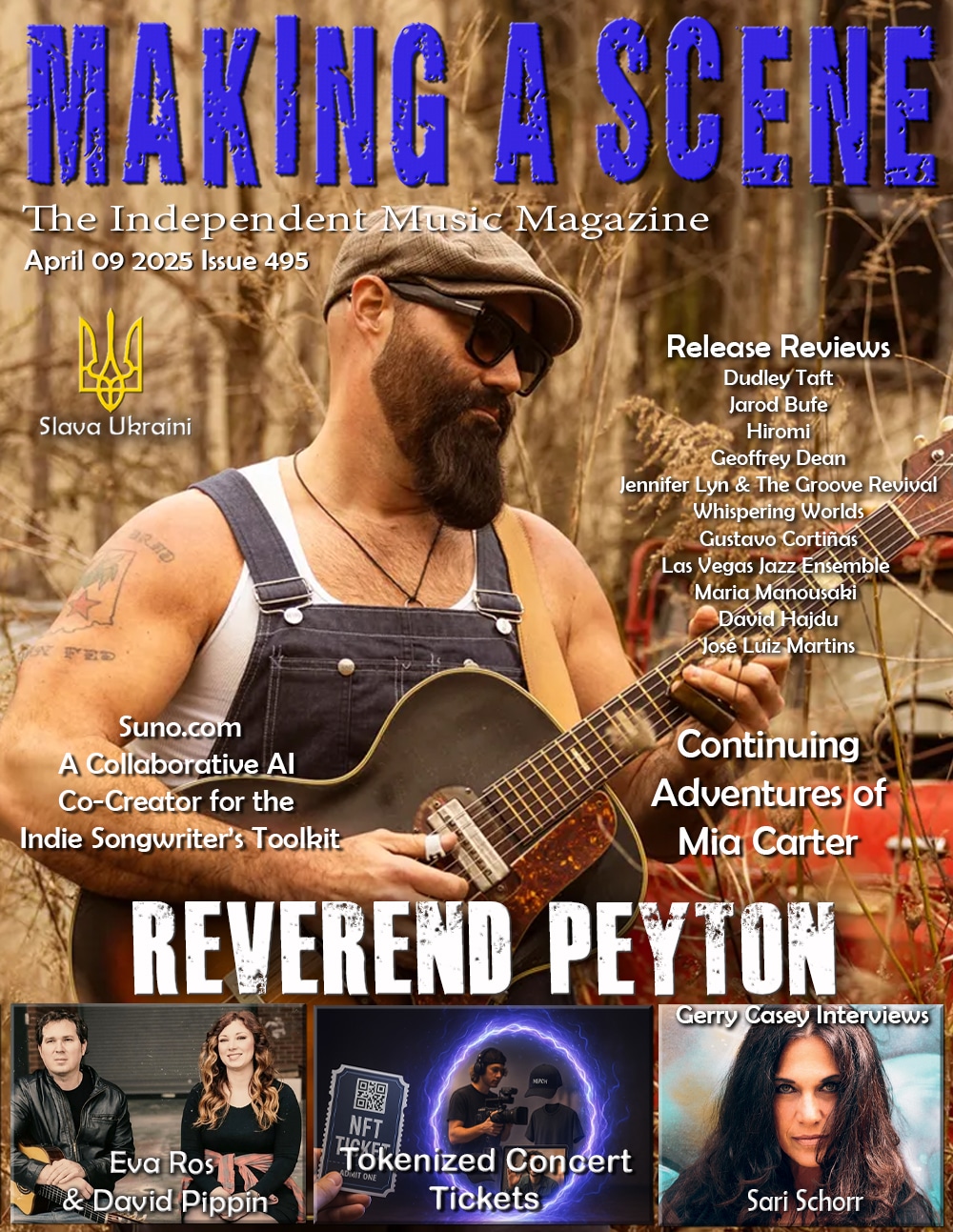Marc Cary Life Lessons
Life Lessons
Sessionheads United
Keyboardist Marc Cary is veteran who built his reputation backing such giants as Abbey Lincoln, Betty Carter, Roy Hargrove, Jackie McLean, and Randy Weston. Yet, with now 18 albums as a leader, this trio debut Life Lessons, with bassist Dan Chmielinski and drummer Diego Joaquin Ramirez reveals a very contemporary stance. That is due in part to his use of multiple keyboards, deftly blending electronics with the acoustic piano, augmented by the fuzzy tones that Chmielinski coaxes from his Moog bass in certain tracks. Also, this is the furthest notion from a quickly slapped together trio, as Cary says, “It’s a three-way relationship that was built, really, over every week, playing together for three or four years, and also being in class together for two years prior.” The sessions referenced are the Harlem Sessions which were weekly curated late night jam sessions that Cary established in 2015, from which this studio album is born.
Cary begins with one of two songs from Abbey Lincoln, “And It’s Supposed to Be Love,” meshing the Rhodes with the acoustic in a tender mode. Cary accompanied the legendary Lincoln for a dozen years, and his deliberate approach is articulate and melodic sense so strong that it’s as if he is singing the lyrics. “Tricky” aptly gets angular and rhythmically tough but his bandmates not only follow, they strongly support Cary’s improvisations, while also stepping out to make their own forceful statements. The epic, Moog-based powered “It’s Not a Good Day to Die” was composed in tribute to Amadou Diallo, the unarmed immigrant killed buy the NYPS in 1999. Here he again effectively layers keys, with the Rhodes leading. The bassist gives it a neo-soul feel as does Cary’s second synth, which delivers even more colorful textures. Cary comments, “I like fuzz. I like noise. I’m very industrial. But the reason I use synth is because it’s much more expressive than the binary piano, and so I can use the melisma of what I would sing. I’m too old to be a singer, but I am melodic.” In another statement Cary claims to have begun his keyboard playing on synth before moving to Rhodes then Wurlitzer, and finally the acoustic piano. Obviously, it’s the opposite path for most.
“Equilibrium” is a funky chord-driven piece that showcases Ramirez’s trap work while one can feel the sentiment and group chemistry in the Roy Hargrove ballad “Trust,” with the bassist in counterpoint and the drummer serving as both the keeper of steady rhythm and as a sensitive percussionist. “Learning How to Listen,” featuring primarily the acoustic piano, is another sweet Abbey Lincoln song with strong contributions from Chmielinski as well. With the bassist steady bassline anchoring the danceable “Without Walls,” one can hear strains of Washington D.C.’s go-go music scene. During the early 80s’ a youthful Cary had a go-go band that had two unicyclists dancing on the sides of the stage.
Other highlights include the spacious, glistening, sprightly “God Is Love” and “Phase 2,” which is based on the Chandrakauns raga from Hindustani music. The latter continues the psychedelia coloring “Without Walls” but becomes more industrial in sound behind the Moog bass, use of wah-wah pedals and other effects, and a steady thumping bass drum. Cary spins two different synth lines, one melodic and the other timbral, as he also plays with variations on a five-note scale through a swirling, whirling sonic backdrop. Ramirez’s rhythm patterns somehow hold this loosely collaged but brilliant piece together.
It’s a difficult segue to anything after that but Cary makes a smart choice by easing out with dreamy, electronic “Listen Still.” There are two hidden bonus tracks – a lovely acoustic solo piano version of “Trust” and a version of “It’s Not a Good Day to Die” entitled “Perspective,” a less fuzzed-out, sublime reprise of the theme.
So, as stated previously on these pages, beware of dismissing piano trios as “staid” and “too much alike.” Cary and his trio deliver an imaginative, freshly contemporary sound that set them apart.
- Jim Hynes
Buy Us a Cup of Coffee!
Join the movement in supporting Making a Scene, the premier independent resource for both emerging musicians and the dedicated fans who champion them.
We showcase this vibrant community that celebrates the raw talent and creative spirit driving the music industry forward. From insightful articles and in-depth interviews to exclusive content and insider tips, Making a Scene empowers artists to thrive and fans to discover their next favorite sound.
Together, let’s amplify the voices of independent musicians and forge unforgettable connections through the power of music
Make a one-time donation
Make a monthly donation
Make a yearly donation
Buy us a cup of Coffee!
Or enter a custom amount
Your contribution is appreciated.
Your contribution is appreciated.
Your contribution is appreciated.
DonateDonate monthlyDonate yearlyYou can donate directly through Paypal!
Subscribe to Our Newsletter
Discover more from Making A Scene!
Subscribe to get the latest posts sent to your email.
















































